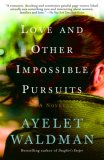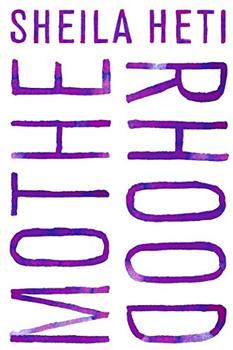Summary | Excerpt | Reading Guide | Reviews | Beyond the Book | Read-Alikes | Genres & Themes | Author Bio

This article relates to The Nine Lives of Rose Napolitano
Over the past couple of decades, it's become more socially acceptable to talk and to write about the complexities of motherhood. It's also become less taboo to acknowledge—as Rose does in The Nine Lives of Rose Napolitano by Donna Freitas—that motherhood is not the right choice for every woman. The following books articulate, in different ways, the ambivalence or unease many women feel toward the prospect of becoming mothers.
 The Fifth Child by Doris Lessing
The Fifth Child by Doris Lessing
This novel of Lessing's, first published in 1988 and set in the late 1960s, is a work of literary horror. Two conservative parents have created a haven of domestic bliss in opposition to the social unrest unfolding in the wider world. But their feelings of smug superiority are shattered when their fifth child, Ben, is born grotesque, violent and essentially unlovable, forcing his mother, Harriet, to question the notion of an inherent maternal instinct and unconditional maternal love.
 Love and Other Impossible Pursuits by Ayelet Waldman
Love and Other Impossible Pursuits by Ayelet Waldman
Waldman has gained a measure of notoriety for her frank and sometimes controversial essays about marriage and motherhood. In this novel, Emilia is giddy about starting a new life and family. But her new husband has a son whom she has difficulty loving, and when tragedy strikes, she is compelled to confront her complicated feelings toward her stepson and her worth as a mother.
 Motherhood by Sheila Heti
Motherhood by Sheila Heti
Even though Motherhood is cataloged as a work of fiction, it's awfully tempting to read it as autobiography. It includes black-and-white photographs that may be of Heti's own home and family, and the protagonist's life bears a lot in common with the author's. Heti structures many of the novel's sections as a series of yes-or-no questions that generate self-examination surrounding the narrator's decision as to whether or not to bear a child. Complicating this decision is her identity as a writer, as she fears that giving birth will hamper other kinds of creation.
 A Woman Is a Woman Until She Is a Mother
A Woman Is a Woman Until She Is a Mother
by Anna Prushinskaya
Prushinskaya grapples with issues of women's identity. Over 11 chronologically ordered essays, she interweaves examples from literature with her own life experience, exploring how a woman's self-image—not to mention the gaze the world casts on her—changes upon becoming pregnant and having a child. Prushinskaya's writing is lyrical and expansive, illustrating through both word and theme that women can both embrace motherhood and be deeply conflicted about it.
 Baby Love by Rebecca Walker
Baby Love by Rebecca Walker
This memoir by Rebecca Walker is subtitled "Choosing Motherhood After a Lifetime of Ambivalence." Written in the form of a journal, Walker's book uses her pregnancy with her son as a span of time during which to examine her life's choices and her eventual, hard-won decision to choose motherhood. Her pregnancy brings to a head some of the issues that contributed to her long-standing uncertainty about motherhood, including her tense relationship with her own mother, the writer Alice Walker.
 And Now We Have Everything by Meaghan O'Connell
And Now We Have Everything by Meaghan O'Connell
O'Connell's memoir recounts her experience of an unexpected pregnancy when she was in her 20s and still figuring out her identity as a person in the world. She outlines her conflicting emotions, from fears of losing her personhood to the desire to surrender to something totally outside her control. Ultimately, she decides to claim her unplanned pregnancy as a feminist act, and grows to accept her new identity as a mother as one of several she can continue growing into.
 Mom by Rebecca Jo Plant
Mom by Rebecca Jo Plant
Unlike the other works on this list, this book is neither a novel nor a memoir; however, it traces the history of a cultural shift that laid the groundwork for those creative works about motherhood to be written. Historian Plant sketches out the evolution of so-called sentimental motherhood over the course of the 20th century, especially among white, middle-class women, and outlines the intersections between cultural attitudes toward motherhood and the tenets of second-wave feminism. Plant's account traces the path toward women acknowledging the complexities of domesticity, both to society at large and to themselves.
Filed under Reading Lists
![]() This article relates to The Nine Lives of Rose Napolitano.
It first ran in the May 19, 2021
issue of BookBrowse Recommends.
This article relates to The Nine Lives of Rose Napolitano.
It first ran in the May 19, 2021
issue of BookBrowse Recommends.
A library is a temple unabridged with priceless treasure...
Click Here to find out who said this, as well as discovering other famous literary quotes!
Your guide toexceptional books
BookBrowse seeks out and recommends the best in contemporary fiction and nonfiction—books that not only engage and entertain but also deepen our understanding of ourselves and the world around us.